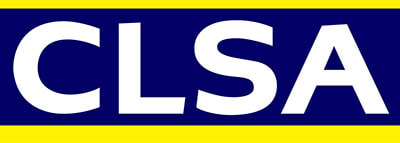What Can You Do to Stop Feeling Nervous?Nervousness is the body’s way of responding to stress. It is nature’s way of sending a signal to the body, to prepare for an imagined threat. A little bit of stress can be good. This is called good stress. It keeps us on our toes and heightens awareness. But too much stress leads to nervousness and having this occur frequently, does impede functioning. So, it’s good to learn tools that manage stress levels and teach us how to stop feeling nervous. Nervousness can be brought about in a variety of stressful situations:
These are but some examples. Even children are not spared. Nervousness is rampant on the first day of school, parents included. A common trigger is upcoming exams and the thought of making friends, especially for introverted people. So it isn’t surprising when people seek out remedies of how to stop feeling nervous at one point or other in life. A worthy point to note is that sometimes we can mistake excitement for nervousness. For example, when you’re about to step on stage to receive an award. It is natural to feel excited but the sudden increase in adrenaline causes a rapid heartbeat, sweaty palms and butterflies in the tummy, which feel a lot like nervousness. Years ago I conducted an NLP for self-confidence course to a group of head teachers and head mistresses of a large Government pre-school. Within two half days their level of confidence shot through the roof. It was a matter of using the excitement they felt for self-confidence. Just like we re-cycle things physically, we are also able to do the same with states of mind. A short process is all it takes! Although we stop being nervous once the stressful situation is over, it’s an uncomfortable feeling while it lasts. The good news is, we can learn how to stop feeling nervous and overcome the drama associated with it. This will certainly lead to greater confidence and improved performance. Equipping yourself with NLP for mental health is a great way to manage stress and nervousness. The following are some techniques to try for fit and assess what works best. De Stress Tools Be mindful of your breathing. When you’re nervous the tendency is to breathe from the chest. That’s shallow breathing which does not give you enough oxygen. Breathe deeply from the belly. This calms you down immediately. Find a meditation you like and practise it daily. It doesn’t have to be long. Just the act of sitting down and focusing on your breath for a few minutes is a good start. Spend time in nature. Even a park with some greenery is good enough if you’re in the city. Take a walk outdoors. It clears your head and lightens your mood. And it’s a real treat when the skies are blue. Rehearse Build confidence by rehearsing, what you need to do as many times as possible. In NLP terms you are acquainting and familiarising your unconscious mind with what is to come. In my life as an NLP Trainer, I almost always set up the training room the night before. This allows me to conduct training the next day feeling relaxed and the best outcomes are achieved. If you are new to the stage and you have to make a speech or do a presentation, practise in front of a mirror. With anything, the more you practise the more skilled you become. If you find that this is your weakness, an NLP for self-confidence course is a great way to learn more such tools. Stop The Self-Talk Observe your internal dialogue when you get nervous. Are you saying to yourself things like:
Break this cycle of negative self-talk. This is part of how to stop feeling nervous as your thoughts are crucial in this process. Instead tell yourself:
Take Charge Using tools shared in NLP for mental health can help you take charge and actively reduce this feeling of nervousness. Some tips to take charge are: Eat a balanced diet. You are less nervous when you feel good and physical health has a big part to play in this. Limit consumption of alcohol, drugs and caffeine. These substances impact mental well-being. Get enough sleep. Statistics reveal sleep deprivation increases nervousness as the body craves relaxation. It’s perfectly normal to feel nervous now and then when we’re faced with a stressful situation. Unless you’re a hermit on a mountain top, there is no escape. It is part and parcel of the competitive world we live in. Some adrenaline is fine if it helps improve performance but if you are exposed to too much, this can be detrimental. Whatever you practise becomes easier to call upon when you’re feeling nervous, for example, when you train yourself to breathe deeply during normal times, you’ll be more mindful to do so when you’re nervous. How to stop feeling nervous depends on how you view the situation and what you tell yourself. Knowing this, gives you more control over the situation as all behaviour change is a matter of raising awareness and then changing your thought patterns.
Mastering the de-stress tools and techniques above plus attending an NLP for self-confidence course, will certainly catapult you to a different realm. Even picking up tips from an NLP for mental health book could give you tips to start you on the journey to a new life, where nervousness becomes a thing of the past. Sylvia Fernandes is the Founder & CEO of VIA Frontiers. She is a Master Trainer of NLP who is specialised in corporate applications. She started her business in Sydney in 2002 and has been operating in the Asia Pacific Region ever since. She is currently based in Singapore. She is also the author of Bye Bye Black Cat -- Turn Your Luck Around and Realise Opportunities. Visit VIA Frontiers for more information.
0 Comments
Your comment will be posted after it is approved.
Leave a Reply. |
SYLVIA FERNANDES
Sylvia is a qualified Neuro Linguistic Programming (NLP) Master Trainer. She started her business in Sydney and is now based in Singapore. Archives
December 2024
Categories |




 RSS Feed
RSS Feed









